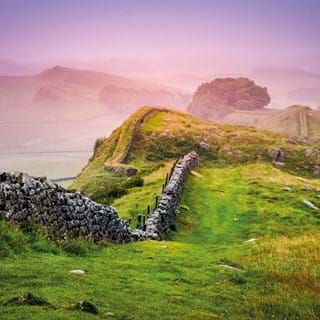
Italy
Italy, a European country with a long Mediterranean coastline, has left a powerful mark on western culture and cuisine. Its capital, Rome, is home to the Vatican as well as landmark art and ancient ruins. Other major cities include Florence, with Renaissance masterpieces such as Michelangelo’s "David" and Brunelleschi's Duomo; Venice, the city of canals; and Milan, Italy’s fashion capital.
Despite Italy’s archaeological record stretching back tens of thousands of years, Italian history starts with the Etruscans, an ancient civilisation that grew between the Arno and Tiber rivers. The Etruscans were replaced by the Romans in the 3rd century BCE, which dominated the Mediterranean world with an empire stretching from India to Scotland by the 2nd century CE.
The Roman Empire was unstable, often due to the unwillingness of conquered peoples to stay conquered coupled with power struggles between competing Roman political factions, military leaders, families, ethnic groups, and religions. The Roman Empire fell in the 5th century CE after a succession of barbarian invasions through which Huns, Lombards, Ostrogoths, and Franks—mostly previous subjects of Rome—seized portions of Italy.
Although the Normans were successful in establishing a modest empire in southern Italy and Sicily in the 11th century, rule devolved to the level of the city-state. Some of these city states flourished during the Renaissance era. This time period saw the rise of intellectual, artistic, and technological advances. Yet it was also plagued by savage warfare between states loyal to the pope and those loyal to the Roman Empire.
Italy has so much to offer – spectacular cities, ancient ruins, wonderful museums, soaring mountains, great beaches, and beautiful natural scenery. It is not to be missed.
Upcoming Departures
Visa:
UK: Not required for a stay of up to 3 months in duration.
USA: Not required for a stay of up to 90 days in duration.
Currency:
Euro.
Packing advice:
In the summer, wear light cotton clothes such as t-shirts, shorts and sandals. Although, if you are planning to visit the cities and towns, you may want to bring comfortable walking shoes. Pack sunglasses, a sun visor or hat, and sunscreen for the hotter days. In winter, whilst the climate is milder in the south, you may need to wrap up warm in the chillier north.
Cultural differences:
The family is the centre of the social structure and provides a stabilising influence for its members. In the north, generally only the nuclear family lives together, while in the south the extended family often reside together in one house. The family provides both emotional and financial support to its members. Appearances matter in Italy and first impressions make lasting impressions there, too. The concept of 'bella figura' or good image is important to Italians. The primary religion in Italy is Roman Catholic and there are more Catholic churches per capita in Italy than in any other country.
Language:
Italian.
Tipping:
As with most European countries, tipping is not mandatory in Italy but it is considered generous. Italians don’t over tip. In most restaurants, service is included in the final bill. You may see a “pane e coperto” listed in the bill, which is a bread and cover charge, which means that it pays for the tablecloth and bread. No further tip is needed. If you want, you may leave a few euros but no more than 10% of the total bill. Andante Travels will take care of gratuities to restaurant staff, local guides and drivers.
 GB
GB
 US
US



